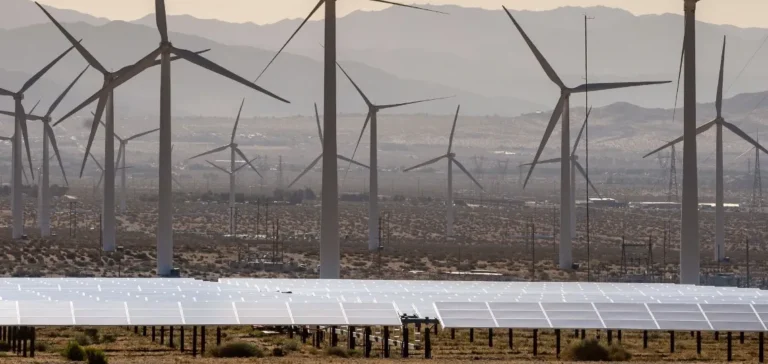The European Commission has approved the addition of five new projects to the list of cross-border renewable energy projects (CB RES), bringing the total number of officially recognised projects to thirteen. This status allows selected initiatives to apply for funding through the CB RES window of the Connecting Europe Facility (CEF Energy), which supports key energy infrastructure.
An expansion towards large-scale wind and solar
Among the selected projects is Liivi Bay Offshore Wind Farm, a 1 GW offshore wind farm in Estonian waters of the Gulf of Riga, which will be connected to Estonia’s national grid. The project is expected to start production in 2031. It aims to meet the growing demand for renewable electricity in Estonia and to contribute to Latvia’s energy transition.
The Utilitas Eleja-Jonišķis Wind Park will provide 200 MW of installed capacity along the Latvian-Lithuanian border. Its connection to the 330 kV Viskaļi–Mūša transmission line is designed to improve regional grid stability and strengthen the energy independence of both countries.
Southern Europe at the centre of future interconnections
The Comprehensive Offshore Renewable Energy Studies (CORES) project, led by Portugal in cooperation with Luxembourg, is preparing the groundwork for cross-border floating offshore wind deployment in the Atlantic. The planned studies will identify up to 10 GW of production potential, with a particular focus on green hydrogen and port infrastructure.
The Medlink Renewable Generation (MedGen) project plans to install 10 GW of renewable capacity, mainly solar and wind, in Algeria and Tunisia. Two 2 GW HVDC interconnectors will allow up to 22.8 TWh per year to be exported to Italy. While the export is not part of the CB RES scope, this initiative is seen as strategic for Euro-Mediterranean energy integration.
Urban heating and local cooperation
Finally, Twin Heat will decarbonise the district heating systems of the twin cities of Słubice (Poland) and Frankfurt (Germany). The installation of biomass boilers and a cross-border heat exchange system represents a concrete example of thermal energy integration between Member States, aimed at reducing urban emissions.
These five projects add to an existing list of eight recognised between 2022 and 2024, such as the hybrid ELWIND park between Estonia and Latvia, and the CICERONE project focused on green hydrogen in Western Europe. The CB RES status grants projects greater visibility, enhanced credibility with investors and stronger support from Member States.
The official adoption of the list by the European Commission is now subject to a two-month scrutiny period by Parliament and Council. It will then be published in the Official Journal and will enter into force 20 days later.






















